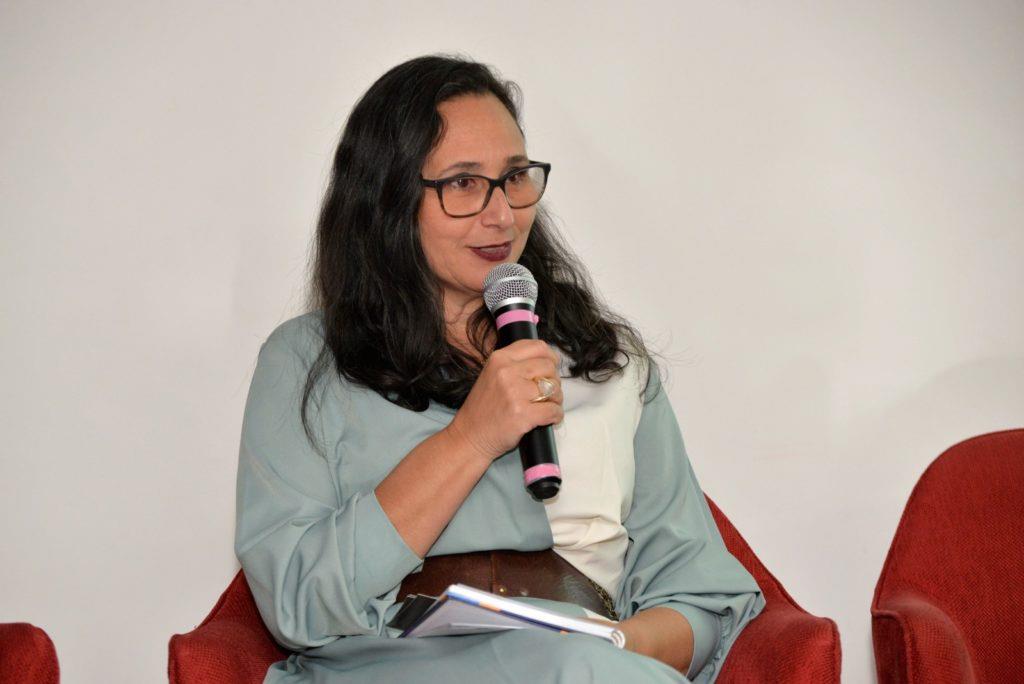
Brazil’S Minas Gerais Could Be Prominent Halal Player

São Paulo – The Brazilian state of Minas Gerais has the potential to become an influential player in the global halal market. The local companies are already exporters of food and beverages to Muslim countries. They could establish themselves as suppliers of halal-certified products, which are attested to be suitable for Muslim consumption.

Silvana Gomes and Kathleen Garcia at the event
This Tuesday (11), the capital of Minas Gerais, Belo Horizonte, hosted the workshop“How halal can boost your brand's internationalization,'” in which businesspeople and executives were encouraged to learn more about and enter this market. The specialists highlighted the preconditions Minas Gerais has to supply the niche.
The event was part of the activities of the Halal Brazil project, carried out by the Arab Brazilian Chamber of Commerce (ABCC) and the Brazilian Trade and Investment Promotion Agency (ApexBrasil), intending to bring a more significant number of Brazilian producers to the global halal market, especially with higher value-added foodstuffs and beverages.

Marcello Faria, from the Minas Gerais state government
The participants learned about the size of the halal food and beverages global market, which in 2021 reached USD 1.26 trillion, and in 2025 is expected to reach USD 1.66 trillion, a 32% expansion. According to international projections, the Muslim population was 1.9 billion in 2020 and could reach 2.2 billion in 2030.
The workshop presented the characteristics and trends of this market, such as the presence of major brands with halal certification, the large share of young consumers among Muslims, the increased use of e-commerce, the more excellent overall perception of the ethical principles of halal and public incentives in Islamic countries for the development of halal products and consumption.
Meanwhile, the state of Minas Gerais is a significant producer of food and beverages, a sector where there is strong demand for halal items. Of the USD 6.4 billion in sugar supplied by Brazil to Muslim countries in 2022, USD 850 million came from Minas Gerais. The state also contributed USD 298 million of the USD 512 million the country supplied in coffee to the region last year and USD 212 million of the USD 4.9 billion in soybean.

Leonardo Rodrigues, from ApexBrasil
Minas Gerais also sells to Muslim markets poultry protein, frozen beef, maize, soy oil, vegetable fats and oils, malt extracts and flours, chilled beef, offal, sweets and white chocolate, eggs, milk, and sour cream, among other products. Data referring to Islamic countries include products in general, both with halal certification and without the seal.
The participating businesspeople and executives interested in obtaining halal certification were invited to the next step of the Halal Brazil project; training with certifiers. To insert 500 Brazilian companies in this market, the Halal Brazil project will invest USD 15.4 million from 2023 to 2025. The activities will focus on South Africa, the United Arab Emirates, Saudi Arabia, Egypt, Indonesia, Germany, France, and Malaysia; Muslim countries or countries with significant halal consumption.

Elaine Carvalho, from the Halal Academy
In the workshop, participants learned a little about certification on a presentation by the International Halal Academy about the concept of halal, how halal animal slaughter is carried out, the ingredients prohibited in halal products, and the steps of the certification process, among other details. Successful Brazilian cases in the area, such as BRF, Zeppone, Polpanorte, and Citrus Juice, were mentioned. A representative of Plena Alimentos, another case, spoke briefly at the event.
The Halal Brazil project organized the workshop in partnership with the state of Minas Gerais government through its Secretariat for Economic Development. The deputy secretary for Economic Development, Kathleen Garcia (opening picture), spoke at the meeting, and the director of Export Promotion of the Secretariat, Marcello Faria, conducted the event's schedule.

Businesspeople attended the lectures in Belo Horizonte
Also spoke at the workshop, from the ABCC, the Marketing & Content director Silvana Gomes, and the Market Intelligence manager Marcus Vinícius; Fambras Halal Quality coordinator and International Halal Academy professor Elaine Carvalho, and ApexBrasil's International Business analyst Leonardo Rodrigues. ApexBrasil's International Business analyst, Laudemir André Müller, sent a video message.
Later this month, two more workshops will be held with the same format and theme in major cities in the interior of Minas Gerais. The events are aimed at companies not yet halal-certified but interested in entering this market. One of the workshops will take place in uberlândia on April 24, from 2:00 pm to 5:00 pm BRT, at the Associação Comercial Auditorium, and the other in pouso alegre on April 26, also from 2:00 pm to 5:00 pm BRT, at the City Council. Registration is open and free of charge.
Translated by Elúsio Brasileiro
Fábio Ortolan/Arab Brazilian Chamber Fábio Ortolan/Arab Brazilian Chamber Verônica Sales/Arab Brazilian Chamber Fábio Ortolan/Arab Brazilian Chamber Fábio Ortolan/Arab Brazilian Chamber Fábio Ortolan/Arab Brazilian ChamberThe post brazil's minas gerais could be prominent halal player appeared first on agência de notícias brasil-árabe .
.jpg)
Legal Disclaimer:
MENAFN provides the information “as is” without warranty of any kind. We do not accept any responsibility or liability for the accuracy, content, images, videos, licenses, completeness, legality, or reliability of the information contained in this article. If you have any complaints or copyright issues related to this article, kindly contact the provider above.






















Comments
No comment